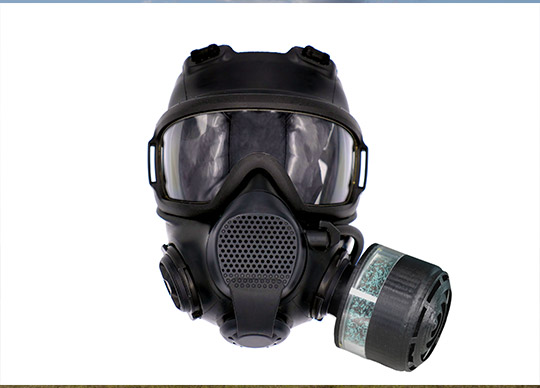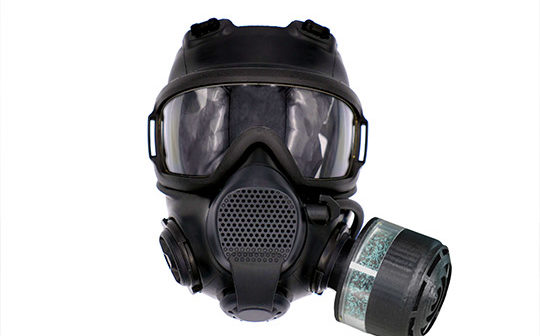

Images: the Single Canister Provides Both Protection For Longer Periods And Against More Potential Threats.
Australia’s national science agency, CSIRO, will accelerate the development of ground-breaking protection for our defence force from chemical, biological and radiological agents, with an $8.6 million Defence Innovation Hub contract to further develop and commercialise its world-leading respirator technology.
This is the largest contract signed by the Hub to date and will help bring the technology a step closer to being realised.
The single canister device is a step change from existing technology, providing both protection for longer periods, and against more potential threats. As well as providing protection from biological and radiological agents, it will significantly reduce exposure to a broad spectrum of toxic industrial chemicals, also critical to the nation’s first responders.
CSIRO will be working with Melbourne-based chemical manufacturing business and porous material’s producer, Boron Molecular, and Brisbane-based, Veteran Owned EPE Trusted to Protect, to develop the respirator, as well as Monash University.
CSIRO Chief Executive Dr Larry Marshall, said Australian innovations that protect our Defence Force personnel are a critical part of maintaining a secure Australia and region.
“We are using science to create real-world solutions, working with Australian industry to build sovereign capability and turn brilliant ideas into something ground-breaking to protect our troops. We are aiming to develop a respirator that will be the most capable in the world.”
CSIRO researcher, Professor Matthew Hill, said CSIRO has been studying porous solids for around 10 years and has developed an efficient and cost-effective manufacturing process.
“By combining our expertise in nanofibers and porous solids, we’re developing a technology that will protect our military personnel from weaponised toxic chemical gases and vapours and give them a greater chance to safely complete their mission.”
Nanofibres are super-light filters that can stop particles from getting through, and combine nanofibers with some of the world’s most porous materials to soak up hazardous gases like a sponge. By incorporating porous materials into respirators, toxic industrial chemicals can be adsorbed before they affect the wearer.
Dr Oliver Hutt, CEO of Melbourne-based chemical manufacturing business and porous materials’ producer, Boron Molecular, said his company was excited to be involved in the development of the leading-edge sovereign Defence capability.
“We’ve worked with CSIRO for many years on various projects, but it’s particularly rewarding to be involved in the development of a technology that will help keep our military safe,” Dr Hutt said.
Brisbane-based and Australian Veteran Owned business, EPE Trusted To Protect, is the lead commercial partner on the project and is manufacturing the canisters.
EPE specialises in using advanced technologies to protect service personnel. From Bomb Response robots to Counter Chemical, Biological, Radiological and Nuclear capabilities, EPE bring unique skills and experience.
EPE’s Managing Director, Mr Warwick Penrose, said the team was looking forward to delivering the canisters to defence personnel and first responders.
“We are excited to work with CSIRO and Defence Science and Technology Group to ensure that the product produced is not just the best technologically but also operationally meets the needs of service personnel,” Mr Penrose said.
“Ultimately, we are excited by the prospect of getting this product protecting the service men and woman of Australia, our allies, as well as the first responder community.”
Monash University, a research partner on the project, will provide critical engineering expertise on the internal canister components.
Professor Mark Banaszak Holl, Head of Monash University’s Department of Chemical & Biological Engineering, said his team was proud of the unique partnership with CSIRO to deliver practical solutions for Australia’s first responders.
The respirator technology featured at the ‘Academy Awards’ of Australian science in 2019, as a finalist in the Defence, Science and Technology Eureka Prize for Outstanding Science in Safeguarding Australia.






